The EU’s 2025 Rule of Law Report Praises Obedient Media and Punishes Narrative Dissent
Brussels’ Ministry of Truth Condemns Hungary
Every year, the European Commission releases its Rule of Law Report, a glossy document that claims to measure the health of democracy and media freedom across EU member states. The 2025 edition, released in July 8th, zeroes in on a familiar target: Hungary. But beneath the surface of this annual ritual lies a far more troubling trend—one that should concern anyone who values free expression in Europe.
The report condemns Hungary for what it describes as serious democratic backsliding, with sharp criticisms directed at the country’s judicial system, lack of anti-corruption enforcement, and restrictions on civil society. But one of the harshest judgments concerns Hungary’s approach to the media. EU will keep €18 billion frozen for Hungary after 'no progress' on rule of law concerns.
While Hungary press is far from perfect, it is being vilified for “state media control,” the same Rule of Law Report praises the state-owned, tax-funded broadcasters of Norway, Sweden, and Germany—namely NRK, SVT, and ZDF. The only real difference between these and Hungary’s public media is political orientation. These outlets broadly support EU policies on migration, climate, and multiculturalism. They are uniformly pro-EU and tend to oppose populist or nationalist narratives. In other words, they echo the Brussels worldview. That, it seems, is enough to win a gold star for media freedom.
In the European Union today, media freedom is defined by ideological conformity. A state-run broadcaster that promotes climate activism, open borders, and European integration is considered “independent.” A privately owned newspaper that challenges those ideas is labeled “extremist,” “populist,” or “misinformation.” In practice, the difference between condemnation and praise is not who funds you—but what you say.
This ideological control is being further cemented by two major EU initiatives: the Digital Services Act (DSA) and the European Media Freedom Act (EMFA). Both are presented as safeguards for democracy and journalistic freedom, but in reality, they offer the European Commission unprecedented power over what information is seen and shared.
The Digital Services Act (DSA) introduces a new content moderation infrastructure in Europe. It designates certain organizations as “trusted flaggers” who can report online content for expedited review and takedown. These entities often include large NGOs, EU-aligned think tanks, or state media outlets. If a journalist or citizen posts information that contradicts EU positions on migration, climate, or health policy, that content can be swiftly flagged, demoted, or removed. The process is opaque, with little oversight or recourse. While the law claims to fight disinformation, critics argue that it creates an environment where only one version of the truth is allowed to circulate. In simple terms, censorship.
The European Media Freedom Act (EMFA), meanwhile, is supposed to protect journalists and promote media pluralism. It is supposed to mandate transparency in ownership, safeguards editorial independence, and requires member states to ensure the safety of reporters. The EMFA will become another tool for the EU to dictate what constitutes “acceptable journalism,” further consolidating power in Brussels. The agreed-upon text lacks crucial safeguards against surveillance of journalists, which dangerously promote the use of spyware in the EU, among other issues.
What we’re witnessing is the creation of a two-tiered media system in Europe. Outlets that toe the EU line—whether state-funded or private—are rewarded with legitimacy, visibility, and sometimes funding. Outlets that dissent—whether conservative, populist, nationalist, or simply skeptical—are marginalized, defunded, and algorithmically buried. The line between “trusted media” and “disinformation” is increasingly drawn not by facts, but by political alignment.
While the European Union sharpens its digital controls, the United Nations is also expanding its influence over online speech, trough resolutions and most recently through the Internet Governance Forum (IGF), which held its 20th annual meeting in June 2025 in Norway. Though it speaks the language of dignity, access, and human rights, the Forum increasingly sets global norms on digital governance. By shaping definitions and “ethical standards,” the IGF is becoming yet another tool for institutional gatekeeping over what counts as acceptable speech.
The United Nations is rapidly expanding its role in global information control. Under the banner of fighting “disinformation,” the UN has launched sweeping initiatives like the Global Principles for Information Integrity and the Global Digital Compact, which aim to establish international norms for regulating online content. UN peacekeeping operations have even deployed digital teams to monitor and counter “harmful narratives” in conflict zones, effectively turning peacekeepers into information enforcers.

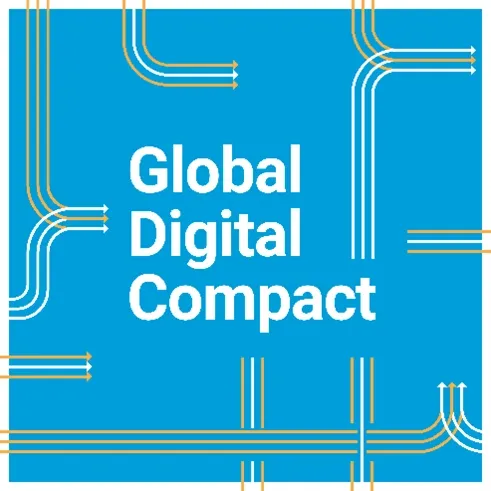
Meanwhile, UN-backed programs train journalists and influencers to align with approved messaging, particularly on sensitive topics . Through these efforts—often framed as promoting rights and inclusion—the UN is quietly positioning itself as the central authority on what constitutes truth in the digital age, reinforcing a top-down model of speech governance that mirrors and amplifies the EU’s own regulatory ambitions.
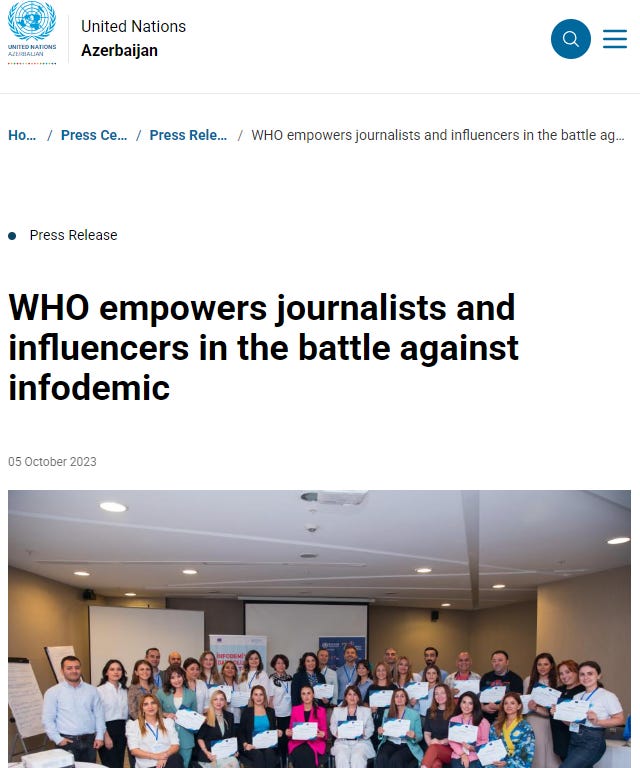
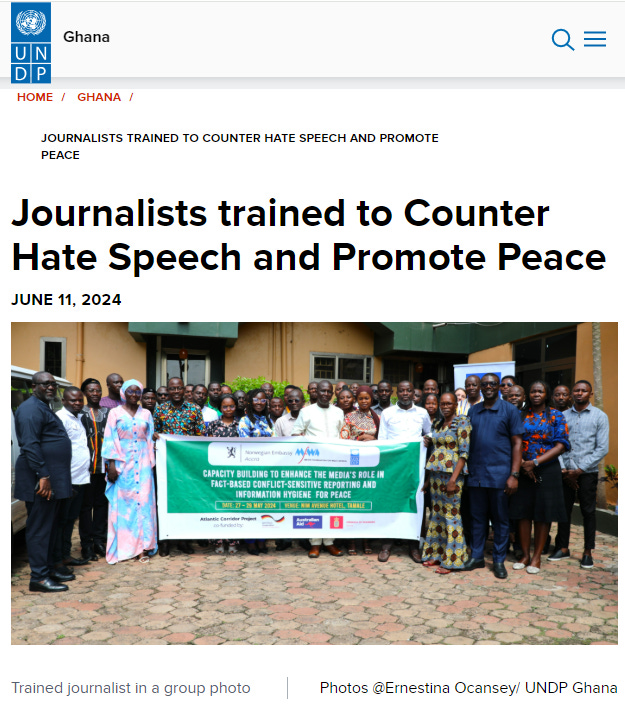
The real threat here is not Hungary’s media system alone, but the precedent the EU is setting. By punishing political dissent and rewarding ideological obedience, Brussels is laying the groundwork for a new kind of soft authoritarianism—one that speaks the language of rights and transparency, while slowly monopolizing the truth. “Free press”? Only if you agree with the EU. The UN is pushing it as a global model to follow.
In the end, the EU must decide whether it wants a truly free press—or simply a loyal one. Until it chooses the former, its Rule of Law Reports will be little more than self-congratulatory manifestos from a European Ministry of Truth.

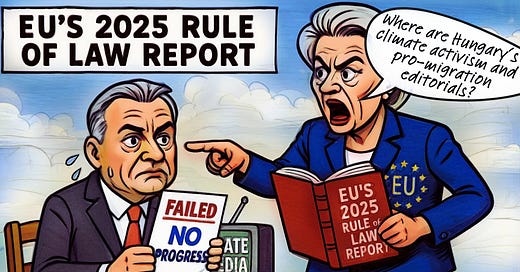




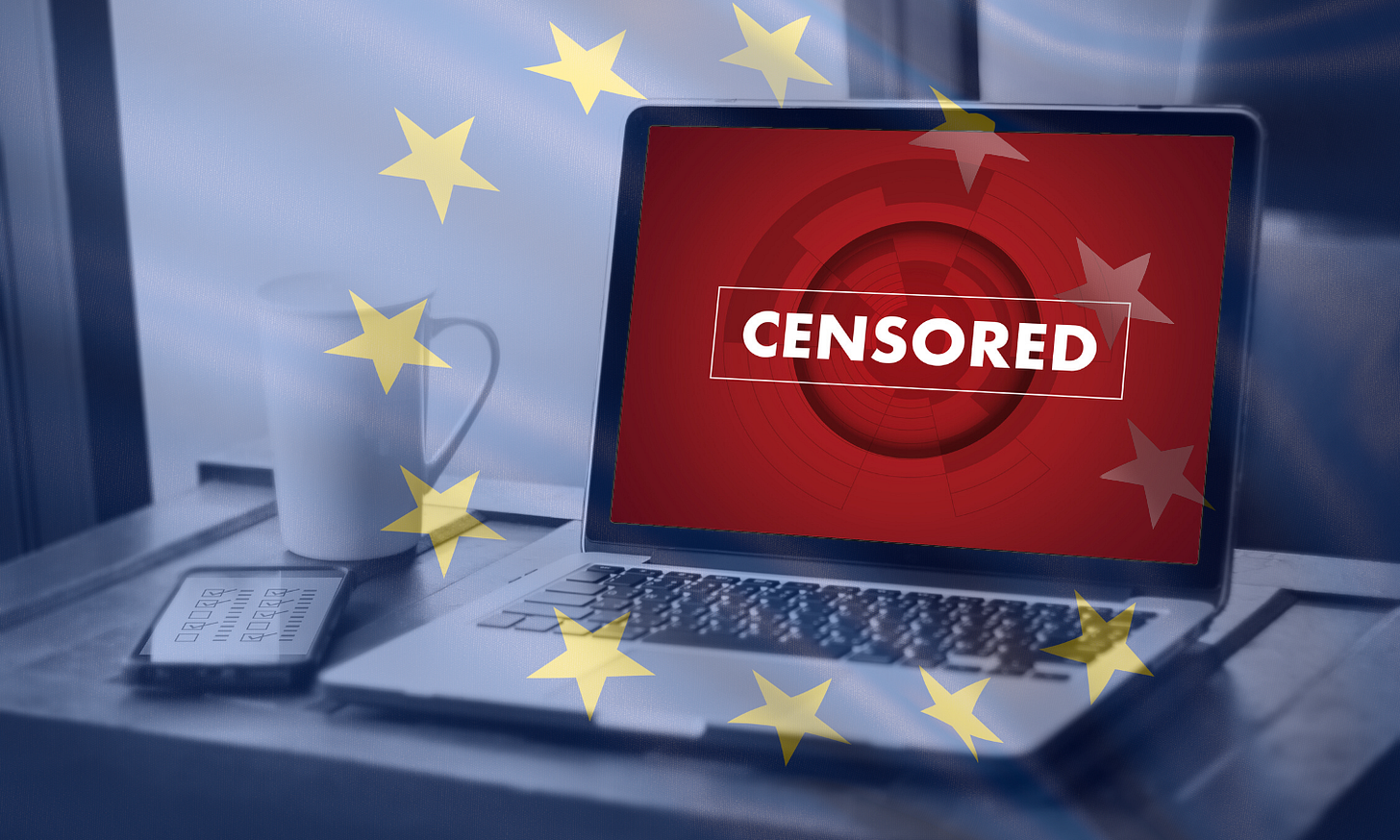



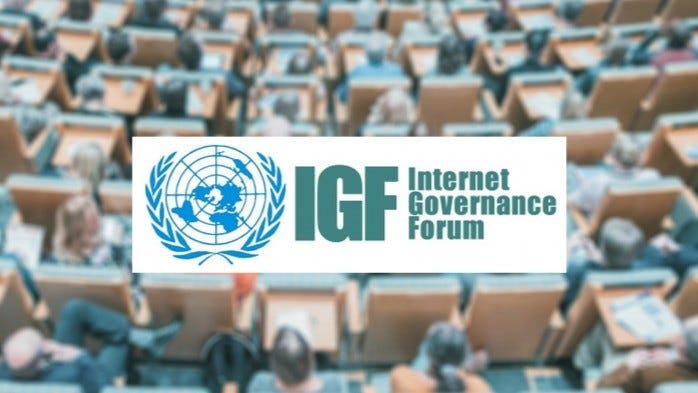


All they're pushing for is tyrannical control over everyone and everything and there's only one way to stop them from what I can see. The EU, UN Unwra, NATO, World Health Organisation and the rest are simply corrupt to their core, plain and simple. They are most definitely not working For the People or for the people's best interests and loaded over there heads from steeling from the people and the Nations at large. Hungry should just severer their ties to the EU, along with Poland for good to survive independently of the EU. The people of the UK would have done the same, if Starmer along with his government hadn't betrayed his own people, but stupid politicians who think they know what they're doing keep feeding this machine of deceit and more besides. It's pure Evil to its core. One day God will judge them for it.